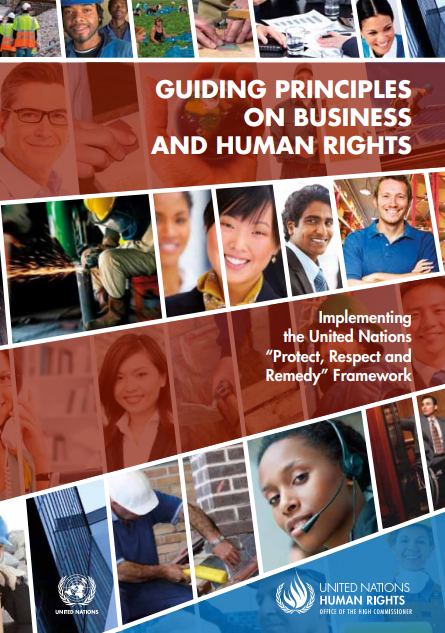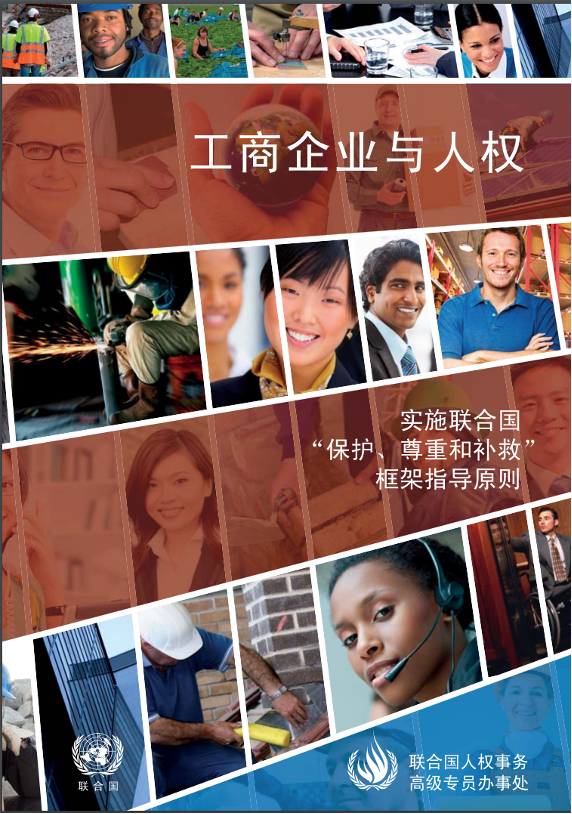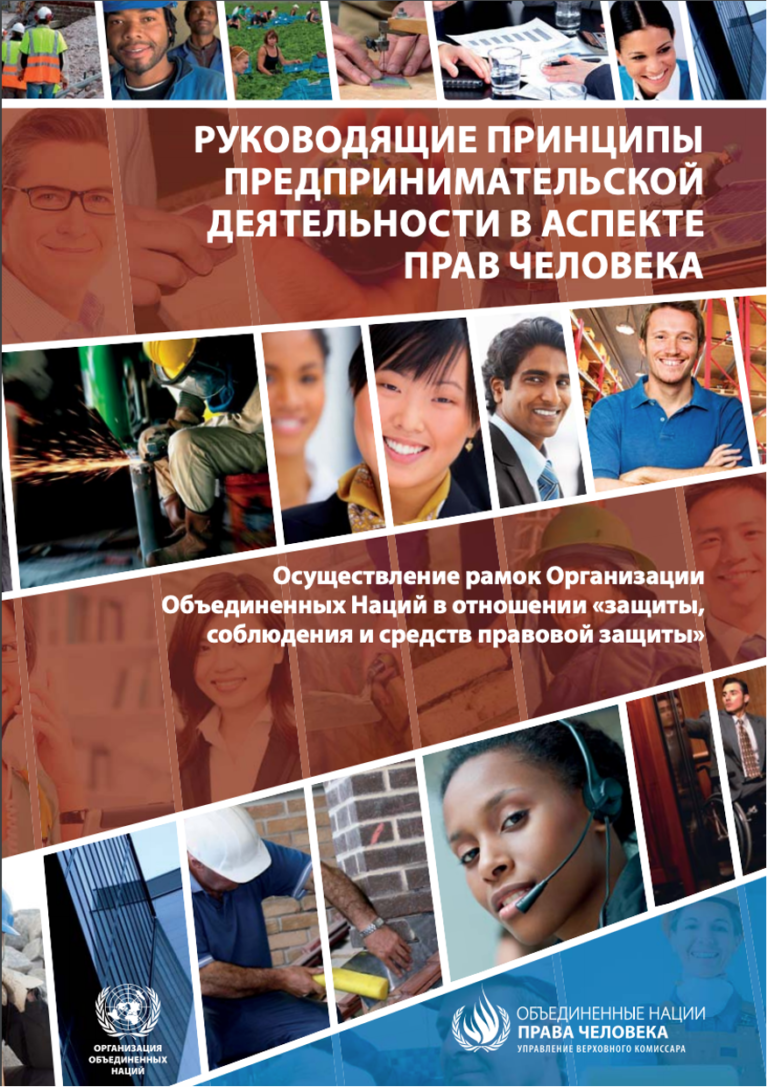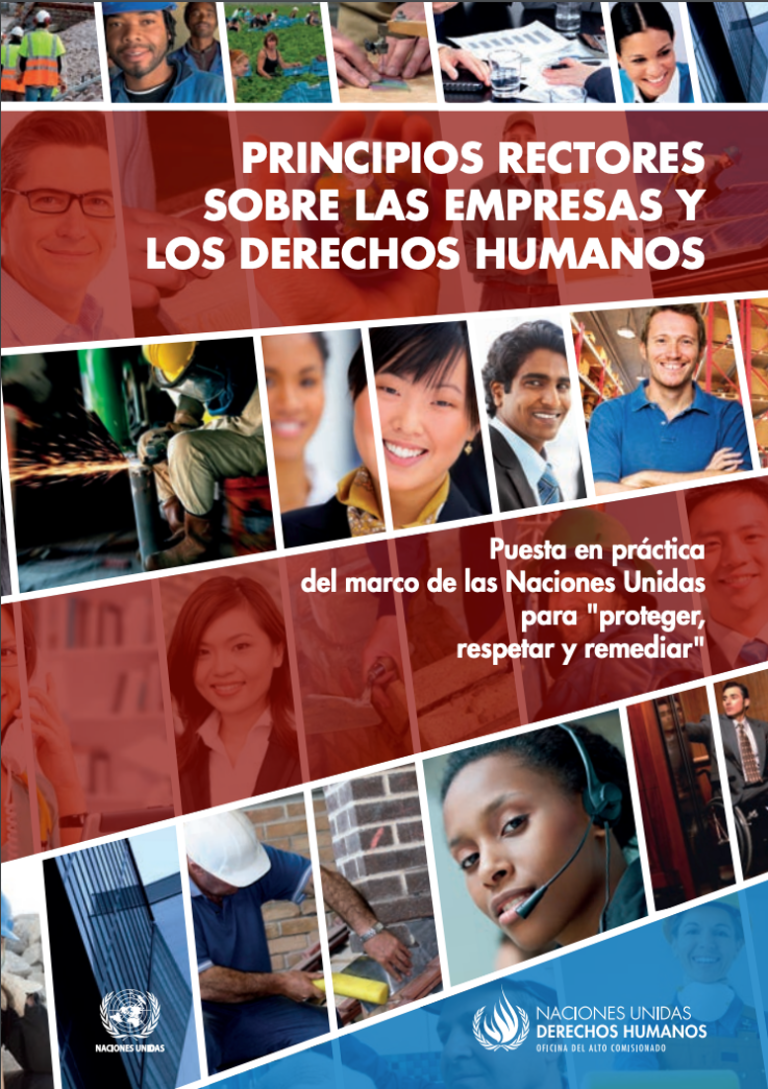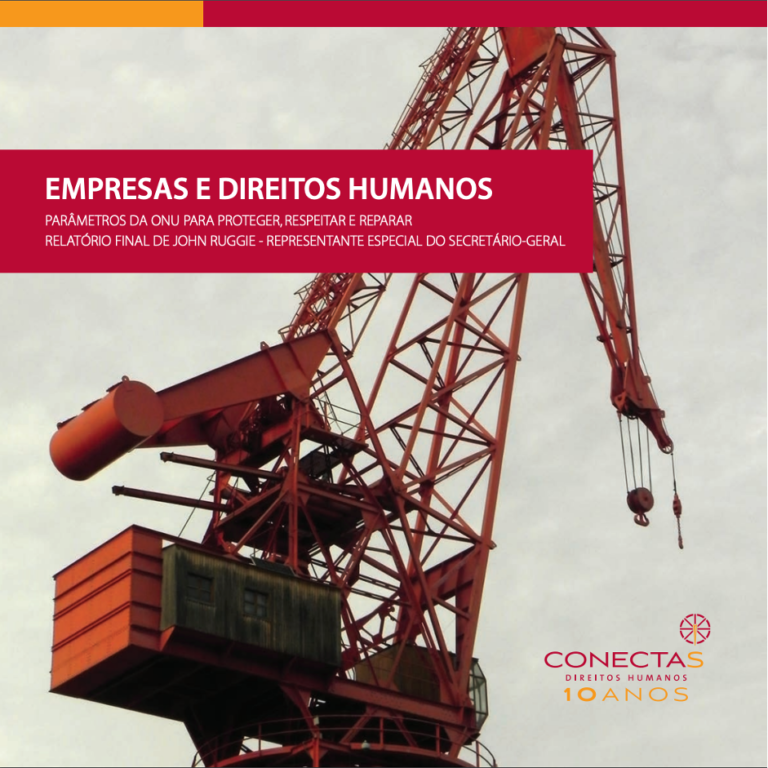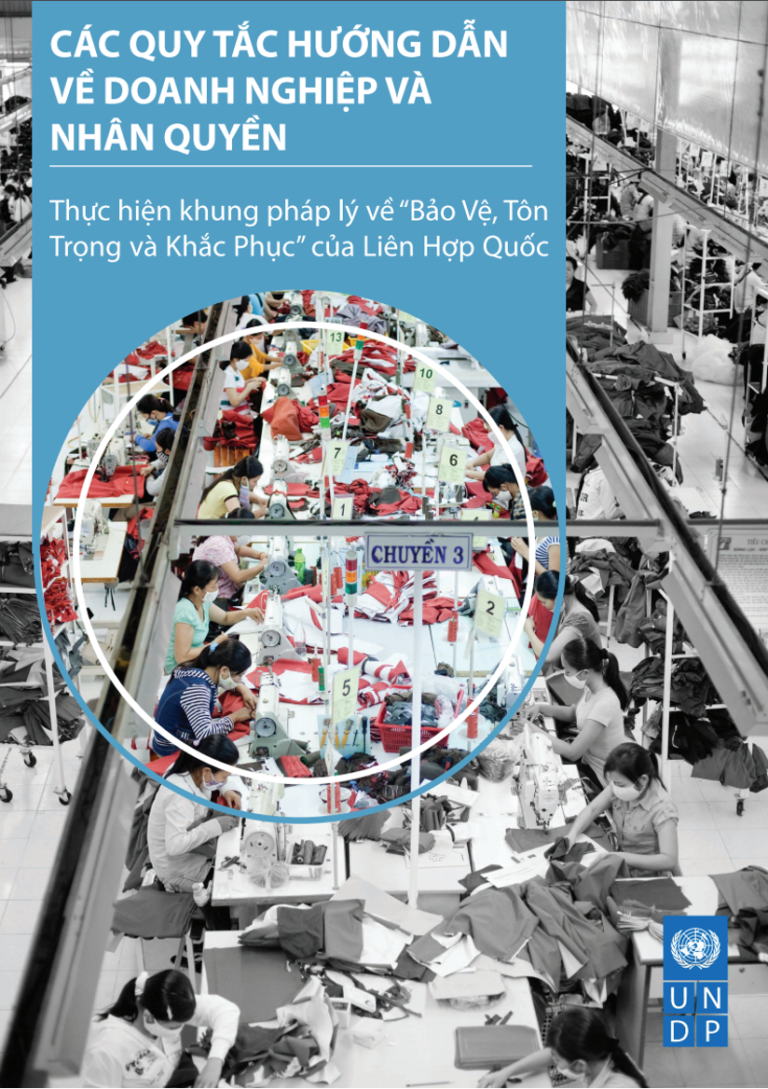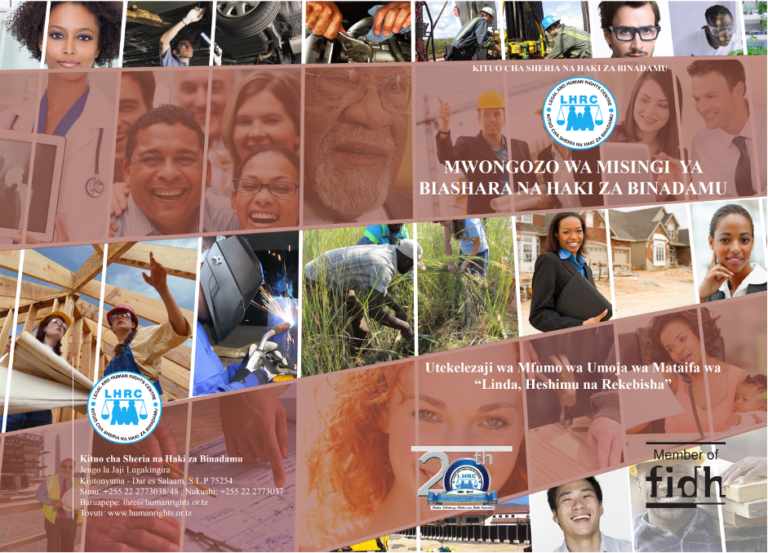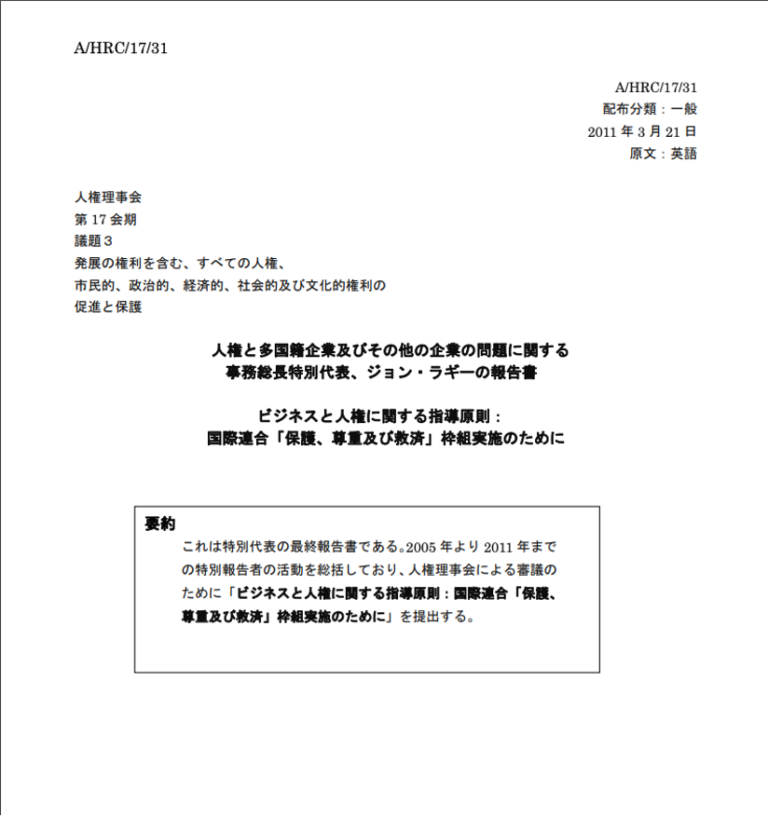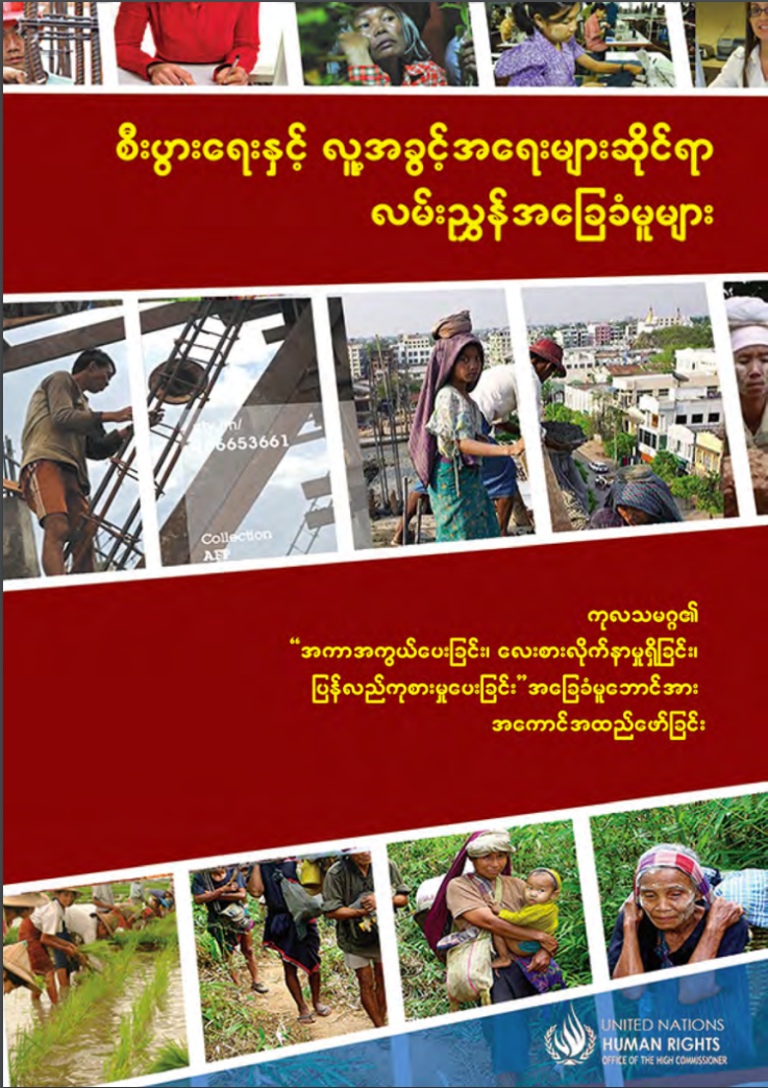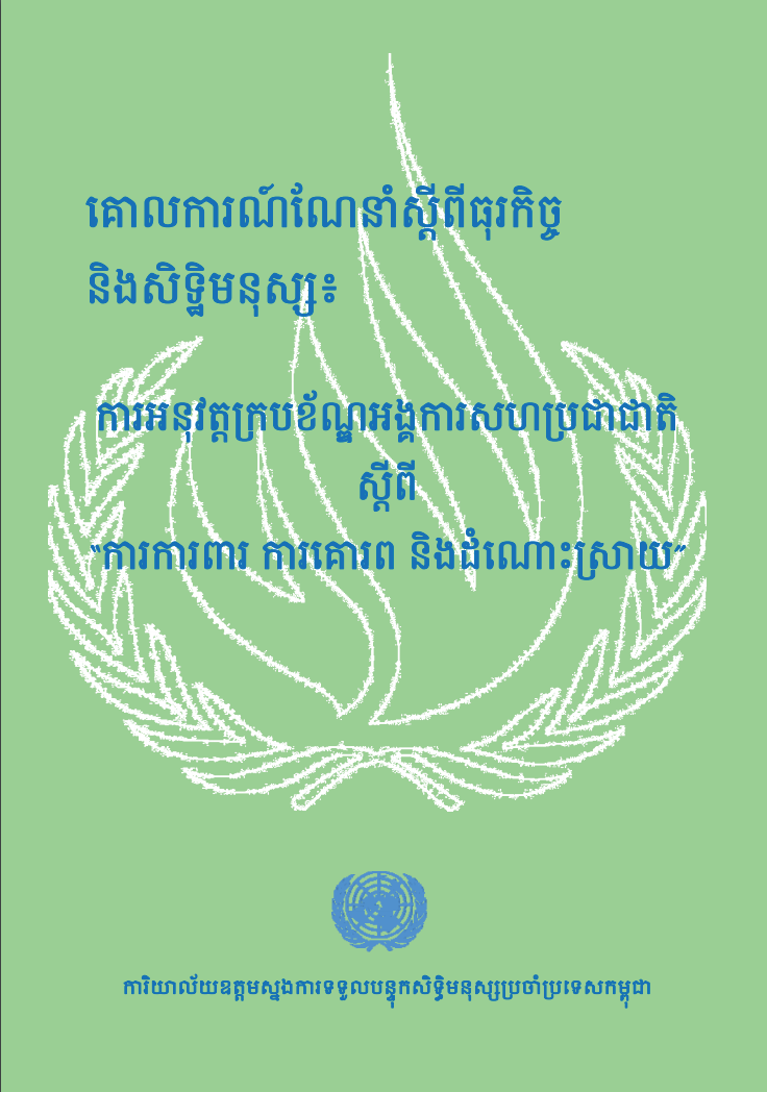This publication contains the “Guiding Principles on Business and Human Rights: Implementing the United Nations ‘Protect, Respect and Remedy’ Framework”, which were developed by the Special Representative of the Secretary-General on the issue of human rights and transnational corporations and other business enterprises. The Special Representative annexed the Guiding Principles to his final report to the Human Rights Council (A/HRC/17/31), which also includes an introduction to the Guiding Principles and an overview of the process that led to their development. The Human Rights Council endorsed the Guiding Principles in its resolution 17/4 of 16 June 2011.
General principles
These Guiding Principles are grounded in recognition of:
(a) States’ existing obligations to respect, protect and fulfil human rights and fundamental freedoms;
(b) The role of business enterprises as specialized organs of society performing specialized functions, required to comply with all applicable laws and to respect human rights;
(c) The need for rights and obligations to be matched to appropriate and effective remedies when breached.
These Guiding Principles apply to all States and to all business enterprises, both transnational and others, regardless of their size, sector, location, ownership and structure.
These Guiding Principles should be understood as a coherent whole and should be read, individually and collectively, in terms of their objective of enhancing standards and practices with regard to business and human rights so as to achieve tangible results for affected individuals and communities, and thereby also contributing to a socially sustainable globalization.
Nothing in these Guiding Principles should be read as creating new international law obligations, or as limiting or undermining any legal obligations a State may have undertaken or be subject to under international law with regard to human rights.
These Guiding Principles should be implemented in a non-discriminatory manner, with particular attention to the rights and needs of, as well as the challenges faced by, individuals from groups or populations that may be at heightened risk of becoming vulnerable or marginalized, and with due regard to the different risks that may be faced by women and men.

